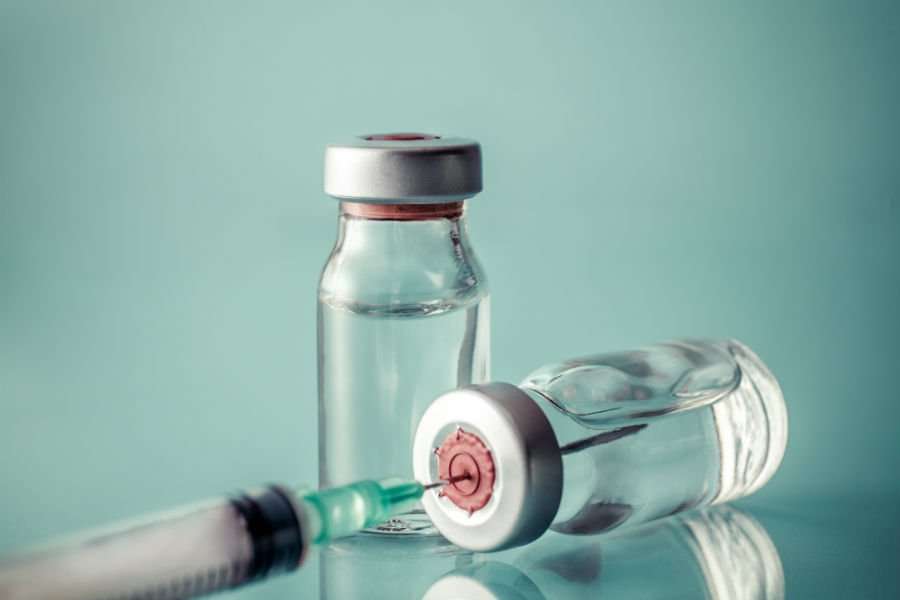The Food and Drug Administration (FDA) says it is taking steps to drive down the cost of insulin drugs used to treat diabetes.
The agency says its efforts have centered on promoting competition, which has been shown to reduce the cost of prescription drugs. In particular, it’s focused on promoting competition for biologic medicines, which are typically complex molecules produced by living cells.
“We've set out in recent months to advance new policies to promote more competition when it comes to biosimilar products and to advance our overall framework that improves the efficiency of the biosimilar and interchangeable product development and approval process,” said FDA Commissioner Scott Gottlieb.
Gottlieb, who is leaving his post later this month, says changing the way biological products are regulated will enable biosimilar or interchangeable products to come to market. He said the FDA can encourage competition by making the process easier, with insulin drugs benefitting the most.
Gottlieb says insulin products have historically been regulated as drugs rather than biologics. The change should allow more insulin drugs on the market.
“The transition of insulin from the drug to the biologics pathway will open up these products to biosimilar competition,” Gottlieb said. “We're already seeing robust activity among sponsors seeking to bring forward biosimilar copies of insulin. “The framework for demonstrating that these insulin products are interchangeable should also be efficient and achievable.”
Insulin drugs are used to treat both Type 1 and Type 2 diabetes, a condition in which the body fails to produce enough insulin on its own. Diabetes is the seventh leading cause of death in the U.S. and accounts for $330 billion in annual health care spending.
In early March, Eli Lilly introduced a cheaper version of its insulin drug, Humalog, in response to the growing pressure on the pharmaceutical industry to cut the price of prescription drugs. Lilly says the new version will cost 50 percent less than Humalog. The company made clear that it is responding to growing complaints from consumers and policymakers about expensive drugs.
Gottlieb believes changing the way insulin and biological products are regulated will speed up the process, getting competing drugs on the market faster. In the case of insulin, he foresees a growing number of lower cost copies on insulin that can compete with name brand insulin drugs.

BlueUnit on April 4th, 2019 at 14:42 UTC »
I live in Michigan and I have a T1 diabetic friend who regularly crosses the border into Canada to buy her insulin. She claims that an amount her pharmacy was asking over $1,000 for, she was able to pick up in Canada for around $80. Absolutely despicable. I’m happy that she has access to that market, but I can’t imagine what it would be like for a diabetic living further South. Our healthcare system is failing those that need it most.
ShellOilNigeria on April 4th, 2019 at 10:44 UTC »
Well this is a headline I didn't expect to read about anytime soon!
Hmmm... Well, it isn't the best anyone could do but at least it is something. Maybe that was the point all along, just show people some "feel good" news, not really change anything, still get to check off the box and say "okay, we did that."
Ovadox on April 4th, 2019 at 10:42 UTC »
Changing regulations to increase competition is good, but in this case I think it is being used as a stall tactic. I heard on NPR that the current form of insulin on the market hasn't changed since 1996. The price has exploded since that time. Companies have had 23 years to figure out ways to make it more efficiently and cheaply, the price should have gone down not up. In the current health care system companies are allowed to maximize profits. That's fine if you're selling toasters, but when it's a drug that someone needs to take or they will die, maximizing profits is basically putting a gun to someones head and saying give me all your money or die. Hospitals, pharma companies and insurance companies should be allowed to make a profit since that gives them an incentive to exist, however that profit should be capped at a moderate level. This already exists in some states with regulation of electric/gas utilities, so there is a precedent for it.